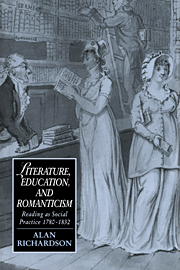1 - Childhood, education, and power
Published online by Cambridge University Press: 08 February 2010
Summary
In My Lady Ludlow, a novella set in the first decade of the nineteenth century, Elizabeth Gaskell portrays the effect on a small English village of the education schemes then so much in vogue. The plot hinges on the opposition of Lady Ludlow, a dowager countess and virtual tyrant of the neighborhood, to the Sunday school which the new clergyman, Mr. Gray, wishes to establish for the poor children of the parish. Lady Ludlow, who “always said a good despotism was the best form of government,” holds fast to the conservatism of her youth in the face of Mr. Gray's fashionable cause: “The cry for education was beginning to come up: Mr. Raikes had set up his Sunday schools; and some clergymen were all for teaching writing and arithmetic, as well as reading. My lady would have none of this; it was levelling and revolution, she said.” Indeed, Lady Ludlow maintains a policy of hiring none but illiterate serving maids, although she herself is not entirely immune to the “new hobby of education” (21) – she keeps an elitist charity school of her own, imparting the mysteries of baking, needlework, and general deportment to young women “of condition, though out of means” (11).
Mr. Gray, earnest and consumptive, holds that Bible reading and a sounder grasp of Church catechism will help prepare his humbler parishioners for the world to come. (Lady Ludlow's steward, Mr. Horner, takes a still more “new-fangled” approach, secretly envisioning a day-school to “train up intelligent labourers for working on the estate” [52–53]).
- Type
- Chapter
- Information
- Literature, Education, and RomanticismReading as Social Practice, 1780–1832, pp. 1 - 43Publisher: Cambridge University PressPrint publication year: 1994

